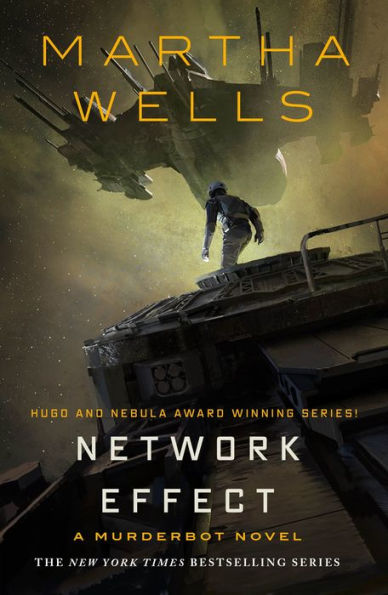Welcome back to the Terry Pratchett Book Club! Did you drink water today? Do you have a fluffy pillow nearby (for screaming into)? Have you spent your allotted five minutes staring into the great abyss and contemplating the universe?
Then you should be all set to move on, and think a bit about “The Sending of Eight”.
Summary
The prologue of this section is concerned with the gods of Discworld, who have a more interesting lot than gods of planets made with “less imagination but more mechanical aptitude”. At the Hub of the Disc, at the top of a high mountain, the Disc gods are currently sitting about and playing a board game that takes place on a carved map of the world. It is being played by Blind Io, Offler the Crocodile, Zephyrus the god of slight breezes, Fate, and the Lady. (Chance and Night are already out.) The Lady is assumed to be next to go, but there’s an interference in her dice roll. Blind Io gripes about playing fairly.
Rincewind and Twoflower are making their way down the road to Chirm as the wizard learns more words from Twoflower’s language, and Twoflower conversely learns that magic requires too much memorization. This is because when magic was tamed by the Olden Ones, they required it to respond to the Law of Conservation of Reality, which means that magic must operate using the same amount of effort that it would take to perform a task using physical means. Rincewind explains that he thinks the world ought to be more organized than all that, which Twoflower claims is fantasy. The wizard hears a sound and there’s a slight breeze, and suddenly a mountain troll is standing before them. Rincewind chucks his sword at it, which suddenly bounces off a boulder and sticks into the troll’s back, kicking it. The horses get spooked, sending Twoflower off into the woods. He comes across a stone with a spider-or-octopus carved on it, and words (that he can somehow understand) letting him know of the temple of Bel-Shamharoth is only a thousand paces away. He heads in that direction.
Rincewind finds himself at the mercy of all the animals Twoflower’s horse managed to irritate, and is hiding in a tree with a poisonous snake and Death, who would prefer it if the wizard finally gave up. He is saved by the appearance of a hornet’s next and a dryad, who prevents him from falling to his doom. (Back in the game of the gods, there are only two players left—the Lady and Fate, who has brought forward a figure of great terror with many suckers and tentacles.) Rincewind finds himself inside the tree with the dryad Druellae, who informs him of where Twoflower has gotten off to. Rincewind knows of Bel-Shamharoth—the Soul Eater—and Druellae insists that he come with her to watch his friend’s fate; he is her prisoner and will die shortly after. Rincewind had believed the dryads died out with the coming of humans to Discworld, but there are many in this tree, and they use magic to create a projection of what is happening to Twoflower.
Buy the Book


Network Effect
Twoflower arrives at the temple, and there is another horse. The other fellow at the temple is Hrun the Barbarian, one of the Disc’s greatest heroes. He arrived there because the Luggage lured him to the temple, and he is currently having a tiff with Kring, the sword he recently stole for his own. Rincewind decides to try and make a break for it, but he’s caught by the dryads and Druellae demands that he prove he is a true wizard by showing that he knows even a simple spell. The only spell Rincewind knows leaps to mind, and he tells her to read his mind as she did before and see it. She does, and it sends her into a panic, telling the other dryads to take him out of the tree and kill him. Rincewind vanishes from the tree and appears where Twoflower is inside the temple, warning the tourist not to say the number eight out loud if he wants to get out alive.
Rincewind then explains to Twoflower the incident that got him kicked out of the Unseen University, reading a spell from a grimoire once owned by the Creator of the Universe. (Magic books leak magic unless they’re properly contained, and this book was contained quite well, but he broke in to read it.) This spell vanished from the book and will only be known when he uses it, or once he dies. Twoflower seems to think they’ll be fine if they can just meet Bel-Shamharoth and explain what they’re doing there. The Luggage shows up, followed by Hrun, and Rincewind tells the hero not to say the number eight—but Kring says it anyway.
They’re all about to die and a great roving eye is on them, but Rincewind picks up Twoflower’s camera and the “flash” goes off, prompting Bel-Shamharoth to retreat into the depths. It turns out that the flash was a box of salamanders, which live off the octarine wavelength of light. Hrun tries to pry up the altar to look for treasure as Rincewind realizes that the temple is starting to come down around them—Time has finally come to show its affects on the temple all at once, having staying away for millennia. Hrun calls his horse, and Twoflower and Rincewind hitch a ride out of the temple while the Luggage runs out behind them. Twoflower wants Hrun to accompany them to Chirm to see that they arrive safely, but Rincewind knows the hero can’t be trusted… until he comes up with the plan to keep Hrun on the hook by claiming that only they can work the “magic box” that gives Hrun pictures of himself.
The Lady wins the board game.
Death watches Rincewind get away yet again, and can’t figure out what it is about the wizard that irks him so.
Book Club Chat
This section is obviously taking a lot of inspiration from H.P. Lovecraft and also from Dungeons and Dragons gameplay, which brings me to a question that might ruffle people a bit—do we think that Pratchett brought both of the elements to bear in his first book because he really loved them, or because he kind of wanted to get them out of the way? Or maybe some aspect of both these factors?
Pratchett is an extremely knowledgeable writer who loves his homages, but there’s something particularly bemusing about taking one of fantasy’s most well-known authors and a game that was getting hugely popular by the 80s (when this was published), and just shoving them into a section of the first Discworld book. It’s hard not to imagine Pratchett thinking, oh good, I can get this out of the way now. Lovecraft isn’t really tonally matched to what Pratchett does overall, but everyone loves a great big tentacle monster and the temples built around them.
I remember being utterly puzzled by this section when I first read it, outside the conceit of the gameplay, which I genuinely loved—and I should add that I wasn’t a D&D player at the time, so that wasn’t the appeal. There’s a lot of great tension built into it, particularly because Pratchett is great at writing big unknowable things and pairing them down into terms that you can actually hold onto. The image of Fate’s eyes, the Lady being favored to be the next play out and taking the whole game, the fact that Blind Io has eyes everywhere, it’s all packed with these delicious images. (Hang on, I definitely wrote a short story about gods playing chess in college, I’m pretty sure I was homaging him without even thinking of it. Yeah, that’s kinda making my day right now. Thanks, Sir Terry.)
Rincewind getting captured by the dryads is a such a creepy little side quest. The dryads are a fun creature to fixate on here because they’re assumed female, and in creating a male version, Pratchett gets to play on that presumption. In most other aspects of fantasy (as in life), female is an addendum to a presumed baseline: she-devil, she-wolf, Entwives, satyress, and so on. In this case, with dryads presumed to be female, it is the appearance of male dryads that gets called out—so we get he-dryads. It’s also fun because they’re just big muscly tree dudes, while the dryads seem to be the ones in charge of the place and the magic overall.
Of course, there’s a major juxtaposition between old magic and current magic in this section. Rincewind had assumed that dryads died out, but they’re clearly alive and well and still hanging about. Their magic is elemental and tied to the earth, as opposed to average Disc magic, which is all tied up in learning and tedious complexities. Which is just another way of saying that people don’t get shortcuts—everything that we do still requires an output of effort relative to the task. Rowling tried to suggest this in the Potterverse and its version of magic, but never managed to explain it in a way that made much sense, but Pratchett manages to do so in a few sentences. It takes him no time at all to establish that magic isn’t a fun workaround, and when Rincewind complains that there isn’t more of an order to things, Twoflower’s response is “That’s fantasy.” Ouch.
Consequences are real on the Disc in a way that we don’t normally accept in other fictional universes. It occurred to me that Rincewind reading his spell from that grimoire is incredibly similar to Doctor Strange reading from the forbidden time book in his eponymous MCU film. But as always in Hollywood narratives, Strange is rewarded for his disobedience, becoming master of the Time Stone because he shows an affinity for it. Rincewind gets kicked out of school, and now owns a spell with consequences he cannot anticipate. (It occurs to me that this is also a very American v British dynamic in fiction—American narratives prize individuality and ignoring authority in practically every scenario, whereas British narratives are less enamored of the concept.)
But there are still things that don’t add up. Like Death wondering how this failed wizard keeps avoiding his appointments with him. The world can’t be free of irritants, after all.
Asides and little thoughts:
- The continued preoccupation with the camera—it’s affect on people, how it works—is so clever. People got so angry at the proliferation of cameras in phones and the advent of selfies that they forgot that we’ve always been this enamored of taking pictures of ourselves.
- I want a box of magical pink salamanders.
- Time suddenly rushing through and making its mark on the temple all at once is one of my favorite visuals in any fantasy novel.
Emmet Asher-Perrin would like to note that their favorite number has always been eight. You can bug them on Twitter, and read more of their work here and elsewhere.










